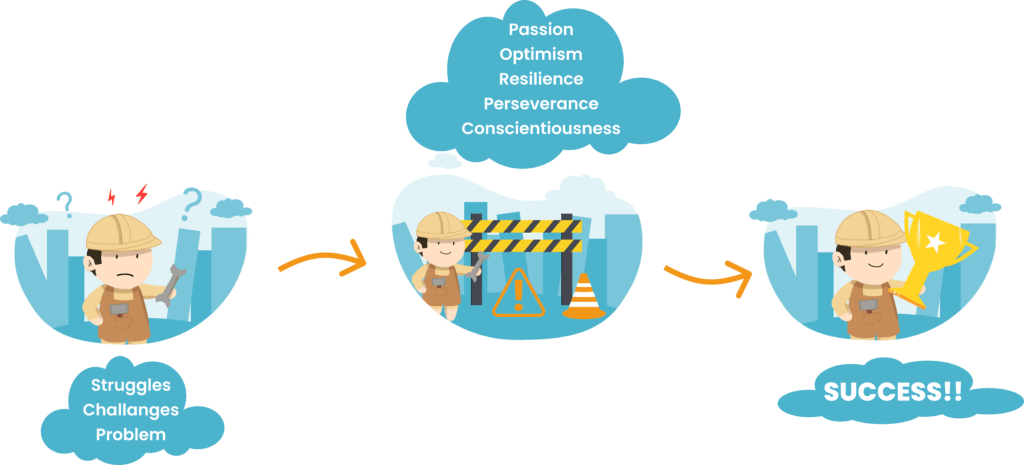
- GRIP Learning's Team
Leadership is about being willing to challenge authority and try new things. To accomplish something novel and improved, followers look to ...
Grit is a trait that is shared by people who keep working toward a goal even after a lot of setbacks and delays. It’s the willingness to keep going no matter how difficult things get or how long it takes to reach your ultimate goal. What matters is that you know where you’re going and that you stick to it. Having such enthusiasm makes it easier to stick with a task, no matter how dull or challenging it may be.
To persevere takes more than just talent. Hard work and determination are not the result of chance. True grit isn’t measured by the intensity of your immediate desires. Instead, grit is all about having a purpose that you value so deeply that it serves as the compass by which you navigate your daily life.
Grit is important because it plays a crucial role in accomplishing goals. It is an ingredient that helps you succeed in school, in your career, and in life. It’s a powerful tool for getting forward, even if your skills aren’t very outstanding. Just keep going and be persistent and focused on your goals despite several failures and challenges. The ability to persist through adversity is more important than innate intelligence or talent if you want to succeed and prosper. Duckworth et al. (2007) say that talent alone isn’t enough to achieve hard goals. Instead, talent needs to be used consistently and carefully over time.
1. Practice repeatedly – Continuous practice is the quickest route to mastery in any field. If you want to succeed, you need to be willing to challenge yourself.
2. Keep Trying/Going – if you fall seven times, make sure to stand up on eight. Successful people don’t quit until they win.
3. Connect yourself with your Goals – If you’re ever faced with something that tries to distract you, remind yourself of your purpose. It’s the only thing that will keep you going in spite of all obstacles.
4. Keep your mind focused – Avoid all the things that distract you. Find out the benefits of focusing your efforts and the drawbacks of allowing yourself to get distracted.
5. Face your worries about failing – Before achieving your goals, you should convince yourself that you can handle any obstacles that may come your way. You can’t be open enough to start anything without it.
6. Get rid of your “fixed mentality” – Put in mind that success is not reserved for the blessed or the lucky. You should always aim high and achieve your goals. If you want to be successful, you have to put in the effort.
7. Give yourself a Reward – Rewarding yourself at each milestone will help you stay motivated and on track when you’re working toward a major goal.

Passion – Indulge in activities that excite you. When you’re truly interested in something, you’ll find a way to make it happen.
Perseverance – Do not allow anything to stand in your way while you pursue your goals. Recognize pain for what it is and learn to use it as a bridge to greater self-awareness and development.
Resilience – When faced with adversity, you should not let it bring you down, but rather, you should view it as an opportunity.
Optimism – For every obstacle you encounter, you look for the silver lining and trust that it will bring about positive results.
Conscientiousness – It is the ability to maintain self-discipline in the face of adversity. This will help you stay on the path you’re tracking.
Duckworth, A. L., Peterson, C., Matthews, M. D., & Kelly, D. R. (2007). Grit: Perseverance and passion for long-term goals. Journal of personality and social psychology. Retrieved September 21, 2022, from https://pubmed.ncbi.nlm.nih.gov/17547490/




